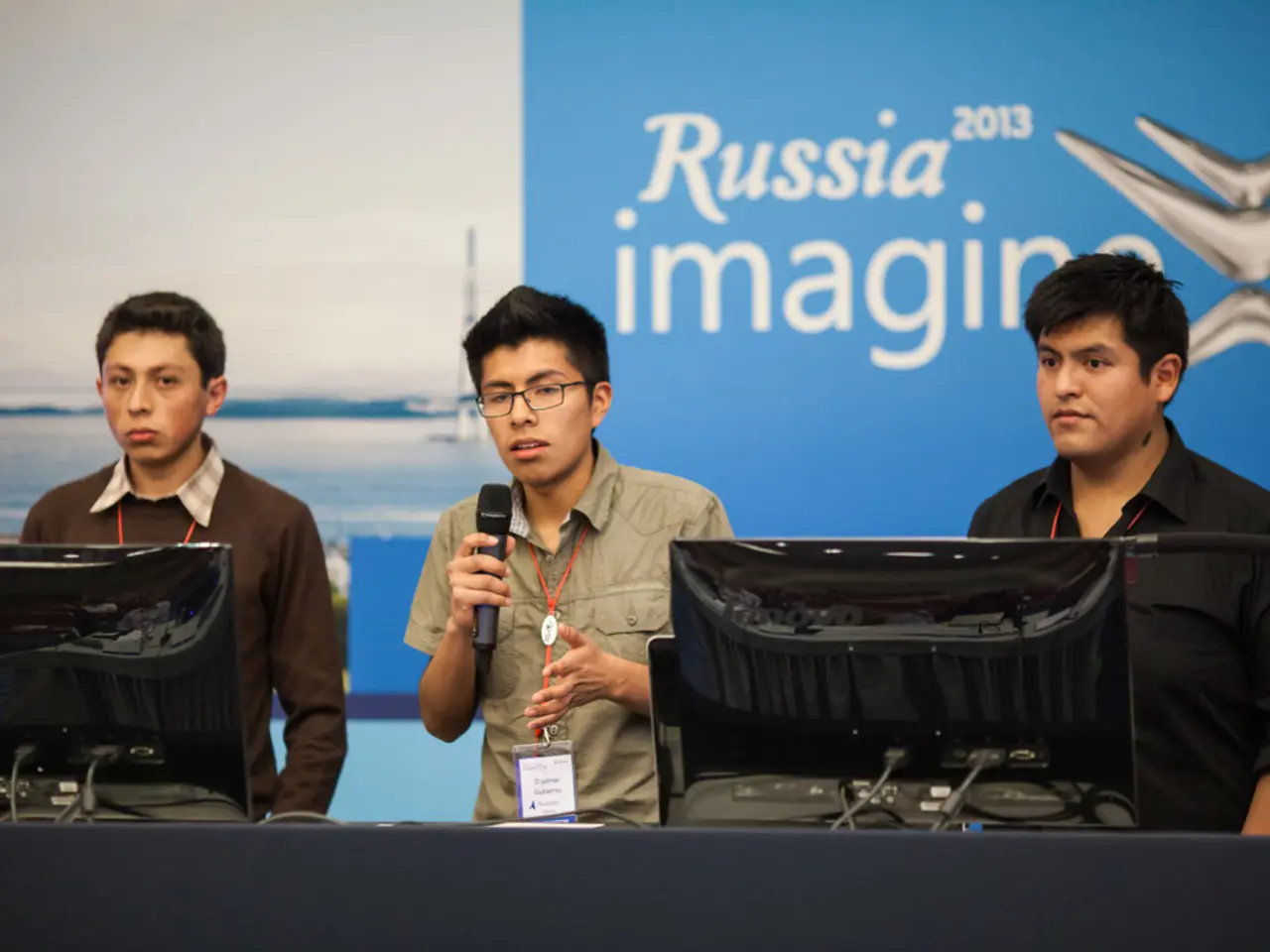Compensation of 7 million rubles to be provided to the kin of the deceased welder
In a tragic turn of events, an electric welder lost their life during the performance of labor duties in March 2024. The accident occurred while electric welding pipes, and the cause is believed to be the unsatisfactory organization of work.
The deceased was a family man, leaving behind a wife and six children. The Prosecutor's Office in Olekmin District filed a lawsuit with the court to recover compensation from the employer for the family. The court granted the compensation of 7 million rubles, and also ordered monthly compensation for the maintenance of the children until they reach the age of majority.
The Prosecutor's Office conducted an inspection of labor safety in March 2024, following the accident. The unsatisfactory organization of work during electric welding of pipes is believed to have contributed to the tragedy.
Safety Regulations for Electric Welding of Pipes in Russia
Russian regulations and guidelines for labor safety during electric welding of pipes are stringent. They mandate strict compliance with national occupational safety standards, use of personal protective equipment (PPE), proper ventilation, and training requirements specific to electrical and welding hazards.
Personal Protective Equipment (PPE)
Welders must wear appropriate PPE such as welding helmets with the correct filter lens to protect eyes from arc flashes, flame-resistant clothing, welding gloves, safety boots, and ear protection. This gear protects against burns, UV radiation, sparks, and electric shock risks.
Ventilation
Welding generates toxic fumes (ozone, carbon monoxide, nitrogen oxides). Working areas must have sufficient ventilation or local exhaust ventilation systems. In confined spaces, suitable respirators rated for welding fumes are required to prevent inhalation hazards.
Electrical Safety
Workers performing electric welding should be qualified for electrical work, trained on safe handling of electrical equipment, and aware of the hazards related to arc welding. Regular refresher training is important to maintain safety awareness.
Workplace Safety Management
The employer must ensure risk assessments are done, appropriate safety procedures are in place, and workers receive instruction on safe welding practices including the risks of fire, electric shock, and toxic exposure.
Standards Compliance
Russian labor safety regulations generally align with established standards for occupational safety in welding work, ensuring protective measures against burns, electric shock, and inhalation of hazardous fumes.
While there is no direct search result citing a specific Russian government welding safety standard, the above points are consistent with globally recognized welding safety rules as well as workplace electrical safety requirements relevant to Russia. However, it's important to note that international sanctions have restricted cooperation with Russia in some technical standards areas as of 2025, which may impact access to updated standards.
For exact Russian regulatory texts, consult official Russian labor safety norms such as TR CU 012/2011 (Technical Regulations of the Customs Union on Safety of Machinery and Equipment) or GOST standards related to welding safety. Welding enterprises must also comply with Russia’s Labor Code and occupational health and safety laws.
Conclusion
The tragic death of the electric welder serves as a stark reminder of the importance of adhering to labor safety regulations in Russia. The incident underscores the need for strict compliance with safety guidelines, proper training, and the importance of workplace safety management. It is hoped that this tragedy will lead to increased vigilance and improved safety measures in workplaces across the country.
[1] International Labour Organization (ILO). (2020). Welding and allied trades: Safety and health guidelines. Retrieved from https://www.ilo.org/wcmsp5/groups/public/---ed_protect/---safework/documents/publication/wcms_657765.pdf
[2] Occupational Safety and Health Administration (OSHA). (2021). Welding and Cutting. Retrieved from https://www.osha.gov/SLTC/etools/welding/index.html
[3] European Union External Action. (2021). Restrictions on cooperation with Russia. Retrieved from https://eeas.europa.eu/headquarters/headquarters-homepage/81554/restrictions-cooperation-russia_en
[4] Russian Federation Ministry of Labour and Social Protection. (2020). Occupational health and safety. Retrieved from https://mintrud.gov.ru/ministry/departments/department_of_occupational_safety/
[5] United Nations Industrial Development Organization (UNIDO). (2021). Technical cooperation with the Russian Federation. Retrieved from https://www.unido.org/countries/russian-federation
- The tragedy that resulted in an electric welder's death in March 2024 emphasizes the significance of abiding by labor safety regulations in Russia, particularly those related to electric welding work, to prevent such incidents in the future.
- To minimize risks during electric welding of pipes in Russia, it is essential to comply with national safety standards, use personal protective equipment (PPE), ensure adequate ventilation, receive proper training, and implement safety management procedures in the workplace.
- In the wake of the accident, there has been a growing concern about the impact of international sanctions on Russia's access to updated welding safety standards, potentially posing challenges for welding enterprises in the country.




